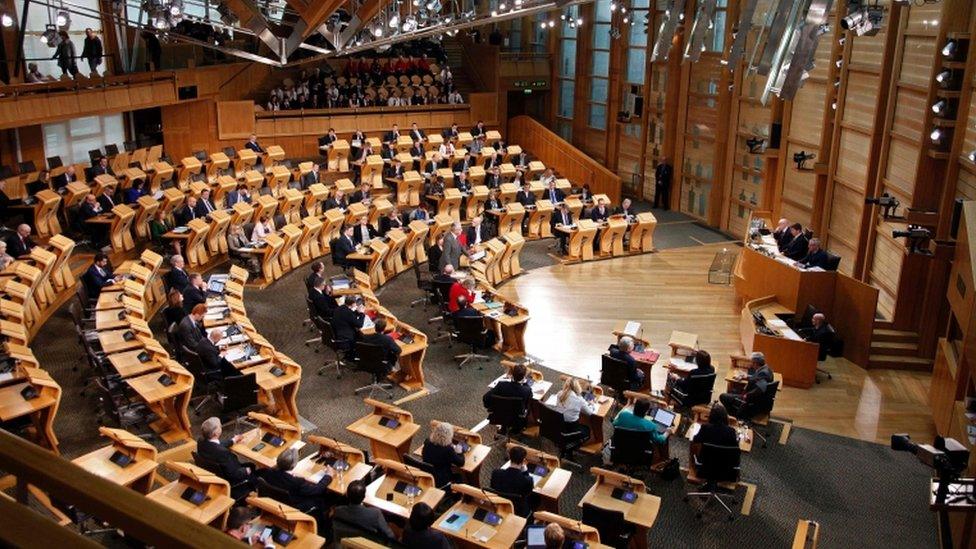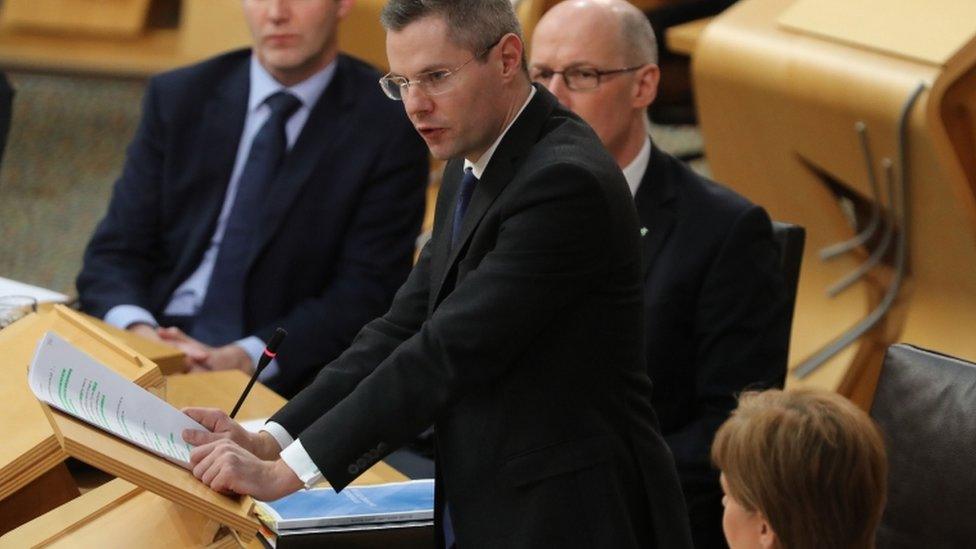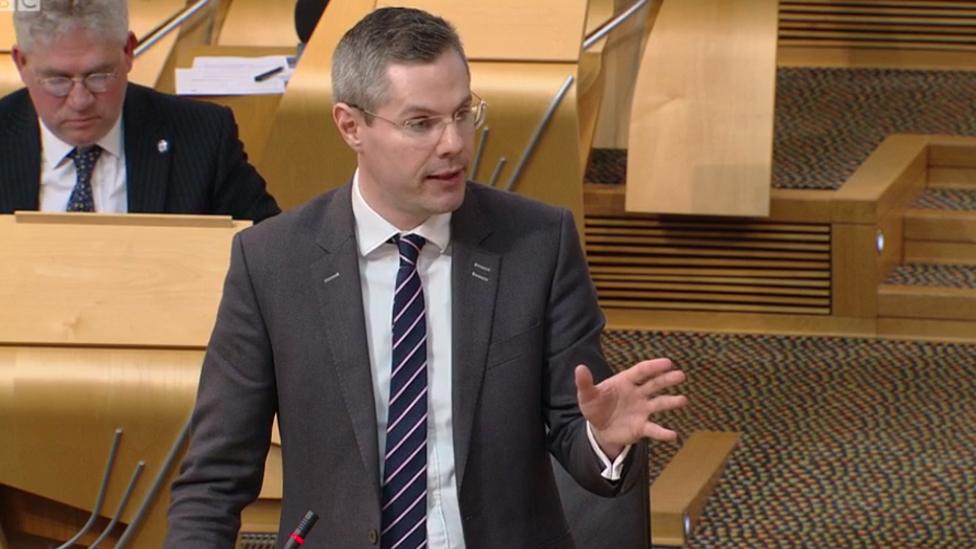MSPs vote to set income tax rates and bands for first time
- Published

Holyrood has made history by voting to set separate Scottish income tax rates and bands for the first time.
The SNP and Greens have agreed a deal which will see the basic rate, paid by most taxpayers, left alone.
But the threshold for paying the 40p rate will start at £43,000 in Scotland instead of the £45,000 elsewhere.
In a separate move, Finance Secretary Derek Mackay also announced extra support for firms affected by business rate rises.
The income tax changes will mean people earning more than £43,000 in Scotland will pay up to £400 more than those on the same salary elsewhere in the UK.
The minority SNP administration had initially planned to raise the threshold for the 40p rate only in line with inflation, instead of increasing it to £45,000 as the UK government has done.
But in striking a deal with the Scottish Greens to get its budget plans through parliament, the proposed rise was scrapped and the threshold was instead frozen at £43,000.
The Scottish Conservatives warned the move will damage Scotland by making it the "highest taxed part of the UK", while Labour and the Liberal Democrats - who both favoured limited tax increases to protect services - accused the government of being too timid with its new income tax powers.
The Greens said they would abstain in the income tax vote to allow the proposals to pass, despite them accusing the government "showing none of the ambition that is needed" on tax.
The party supports a 60p rate on income tax for those earning more than £150,000, but has also said it does not want to see the budget fall as it would lead to "far more damaging cuts to local services".
'Fair taxation'
Speaking in the chamber ahead of the vote, Mr Mackay told MSPs it was a "historic day".
He said: "These powers expand on the limited income tax rate setting powers we had last year and allow the Scottish government to make better decisions to support the people, and economy, of Scotland.
"This is serious business, and the Scottish people are looking to us to act responsibly to secure the best outcome possible for them.
"I remain convinced that our income tax proposal strikes the correct balance between protecting low and middle income taxpayers, but still raising additional revenue. And what all other parties must consider at this time is that if we as a parliament fail to pass a Scottish rate resolution then the consequences for Scotland's budget would be severe."

Finance Secretary Derek Mackay insists he has struck the right balance with his income tax plans
Scottish Conservative MSP Murdo Fraser criticised the "grubby budget deal stitched up with the Greens that increased the tax differential", saying there "is no-one as magical as Mr Mackay at producing money from no-where to get him out of a budget hole."
His colleague Dean Lockhart said the SNP had "marched to the left to join their comrades in the Greens", and were "keeping the pro-independence vote together".
Scottish Labour, which has called for the top rate of income tax to be increased from 45p to 50p, claimed that the deal between the SNP and Greens would "destroy any remaining illusion they are progressive".
MSP Daniel Johnson agreed that it was a "historic day", but said the Scottish government was guilty of a "historic missed opportunity", and were simply "passing on Tory tax plans with a little bit of a tweak".
He added that the SNP had chosen not to use its own tax raising powers, but wanted to take credit for forcing councils to raise local levies, which he said was "ludicrous".
Rennie vs Harvie
Greens co-convener Patrick Harvie spoke out against the SNP "dogged refusal" to embrace bolder tax plans - but he said that did not justify blocking "a historic budget deal".
He became embroiled in a row with Lib Dem leader Willie Rennie, who said the Greens should "own" their backing for the budget deal instead of "skulking behind an abstention".
Mr Rennie said Mr Harvie "should be embarrassed" by the deal, saying: "This is not greener and bolder. This is grey and timid."
Mr Harvie replied claiming that the deal was the biggest budget concession ever won from a Scottish government, noting that the Lib Dems had failed to get "a penny" out of Mr Mackay in their talks.
The Lib Dem leader, who wants income tax rates to be increased by 1p to raise funds for education, shot back that Mr Mackay had not found any new money for the deal, claiming Mr Harvie had been "duped by the finance secretary".
In the final set of votes, the Greens abstained, leaving the motion to pass by 61 votes to 55.
The stage three debate and final vote on the budget will take place on Thursday, with the Greens again committed to backing the government.
- Published21 February 2017
